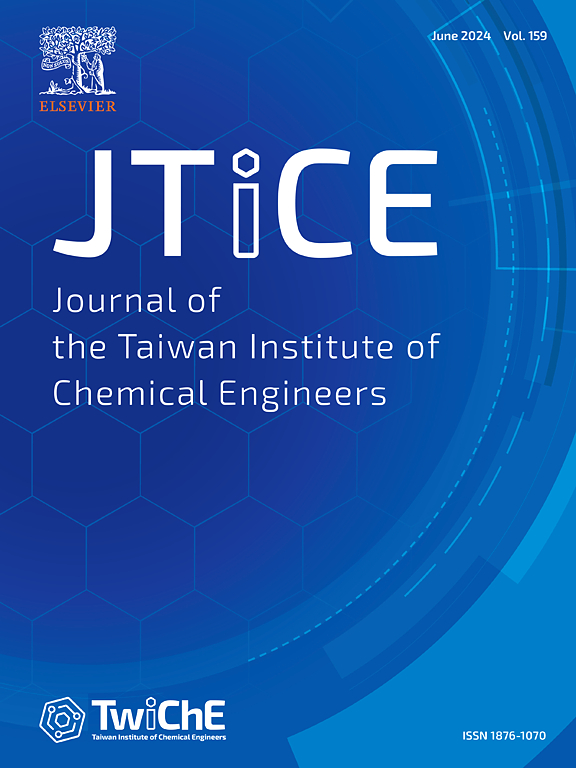Influence of composite material components on laser irradiation effects of resin-based composites
IF 6.3
3区 工程技术
Q1 ENGINEERING, CHEMICAL
Journal of the Taiwan Institute of Chemical Engineers
Pub Date : 2025-05-06
DOI:10.1016/j.jtice.2025.106176
引用次数: 0
Abstract
Background
Resin-based composites with excellent properties are increasingly being utilized in laser environments, where the components of composites significantly influence the laser irradiation effects.
Methods
This study investigates the influence of resin thermal stability and fiber type on the laser irradiation effects of resin-based composites under consistent laser parameters. The research results show the polyurethane-based composites, with the lowest thermal stability, exhibit the lowest back surface temperature under laser irradiation. In contrast, the boron phenolic-based composites, with the highest thermal stability, show the highest front and back surface temperatures. Moreover, quartz fiber-reinforced composites, with lower thermal conductivity, are more susceptible to penetration under laser irradiation compared to carbon fiber-reinforced composites with higher thermal conductivity.
Significant findings
Therefore, the impact of different components on the laser irradiation performance of resin-based composites does not follow a single pattern. And the selection of appropriate material components should be based on specific requirements in practical applications. These studies bridge the knowledge gap on ablation mechanisms of diverse-structured composites under high-energy laser irradiation, offering crucial insights and theoretical backing to bolster the safety of resin-based composites in laser-heavy settings.

复合材料组分对树脂基复合材料激光辐照效果的影响
具有优异性能的树脂基复合材料越来越多地应用于激光环境中,复合材料的成分对激光照射效果有很大影响。方法研究在恒定激光参数下,树脂热稳定性和纤维类型对树脂基复合材料激光照射效果的影响。研究结果表明,聚氨酯基复合材料在激光照射下的背表面温度最低,热稳定性最低。相比之下,硼酚基复合材料的前后表面温度最高,热稳定性最高。此外,石英纤维增强复合材料的导热系数较低,在激光照射下比导热系数较高的碳纤维增强复合材料更容易被穿透。因此,不同组分对树脂基复合材料激光辐照性能的影响并不遵循单一的模式。而选择合适的材料构件,应根据实际应用中的具体要求而定。这些研究弥补了在高能激光照射下不同结构复合材料烧蚀机理方面的知识差距,为加强树脂基复合材料在激光重环境下的安全性提供了重要的见解和理论支持。
本文章由计算机程序翻译,如有差异,请以英文原文为准。
求助全文
约1分钟内获得全文
求助全文
来源期刊
CiteScore
9.10
自引率
14.00%
发文量
362
审稿时长
35 days
期刊介绍:
Journal of the Taiwan Institute of Chemical Engineers (formerly known as Journal of the Chinese Institute of Chemical Engineers) publishes original works, from fundamental principles to practical applications, in the broad field of chemical engineering with special focus on three aspects: Chemical and Biomolecular Science and Technology, Energy and Environmental Science and Technology, and Materials Science and Technology. Authors should choose for their manuscript an appropriate aspect section and a few related classifications when submitting to the journal online.

 求助内容:
求助内容: 应助结果提醒方式:
应助结果提醒方式:


